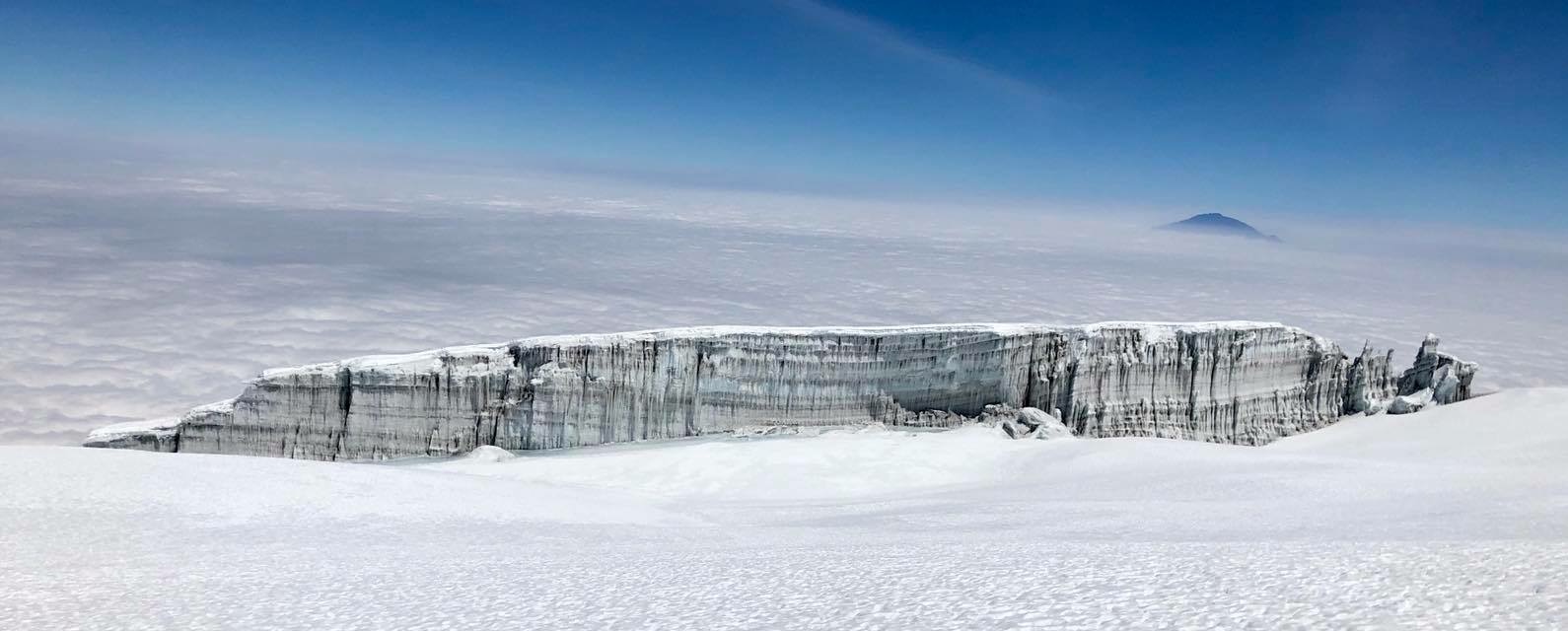
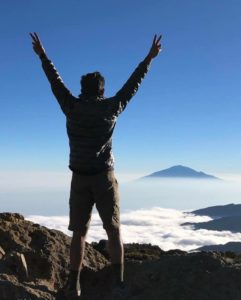 Dr. Sri Pothamsetty with Get Your Rear in Gear – Orlando presenting sponsor Orlando Gastroenterology recently summited Mt. Kilimanjaro in Tanzania. And he didn’t make the climb empty handed! He used his summit as an opportunity to raise colorectal cancer awareness by telling the world to check your colon.
Dr. Sri Pothamsetty with Get Your Rear in Gear – Orlando presenting sponsor Orlando Gastroenterology recently summited Mt. Kilimanjaro in Tanzania. And he didn’t make the climb empty handed! He used his summit as an opportunity to raise colorectal cancer awareness by telling the world to check your colon.
We spoke with Dr. Pothamsetty about his climb and the work he’s doing to promote prevention and screening for colorectal cancer.
What led you to go into gastroenterology?
I was fascinated by the digestive system since my high school days. This interest only strengthened with med school and residency. The complexity of things that can go wrong with our gut, and the interventions one could perform as a gastroenterologist to help treat many of these conditions continue to excite me.
You are often the first to diagnosis people with colon and rectal cancer that could have been prevented with on time screening. What do you want to say to people who are putting off their recommended screening?
You are playing with a ticking time bomb. 30% of us in the 50+ age group have polyps in our colon that could be cancerous, that could easily be removed at colonoscopy. Not getting screened gives one a nearly 5% lifetime risk of colorectal cancer!
Outside of seeing patients, what do you do to help raise awareness and promote preventative screening?
One of the most exciting things we did this year was to sponsor a 5K in association with the Colon Cancer Coalition. Though was raining that morning, hundreds of people showed up. I believe that thousands more got the message from the marketing and publicity associated with the event. We also promote cancer screening at community events. We put out public service messages on our Facebook page and on our website. I have written articles in local publications to make people aware of this need.
We know that a colonoscopy is the gold standard for screening, but what advice would you give a patient about other screening options?
If a patient is not a suitable candidate for colonoscopy because of underlying medical conditions or other reasons, I urge them to get screened by other methods such as CT colonography, barium enema with air contrast, or stool testing such as Cologuard.
What advice do you have for young adults who fall below the recommended screening age, but may be concerned about the rise in young onset colorectal cancer?
As per the recommendations of the American Cancer Society, I advise them to get their first colonoscopy at age 45; unless they have symptoms, in which case a colonoscopy should be done ASAP regardless of age.
What can a young person do if they are experiencing unexplained symptoms, but feel they are being written off by their physician because of their age?
They should consult a gastroenterologist!
As we work to overcome barriers to screening for everyone, how can we ensure that everyone has access to screening?
The costs associated with colonoscopy should be absorbed by the insurance companies, and by the state for the uninsured. This will result in significant savings for both over time, because it will cut down on costs associated with treatment of colon cancer: surgery, chemotherapy, etc. The public should be made aware of the significant benefits of getting screened, in terms of increased longevity from a decrease in risk of colon cancer.
What was your inspiration to climb Mt. Kilimanjaro?
I have been into hiking and climbing mountains for a while, and have always admired the folks who did the Seven Summits (conquered the highest peaks in every continent). Mt. Kilimanjaro appeared to be the most doable of these seven for a novice like me.
Why carry the message about screening to the top of a mountain in Africa?
It’s all about symbolism and publicity. I thought, a lot of people are going to see this picture, so I had one taken of myself at the summit holding the banner promoting colon cancer screening. Saving lives, one colon at a time!
What route did you do and how many days/nights was it?
We took the Machame route. Seven days and seven nights.
What did you use for motivation on summit day?
I carried a 5 Hour Energy shot with with for summit day. But as it turned out, I didn’t need to take it. The thought of summiting was a rush!
Once you summited, did you check that off the list, or were you inspired to climb another mountain?
I was so exhausted after a brutal summit day. I thought this was it for me. But once I recovered, I knew what was next – Everest Base Camp in the fall of 2019. And yes, I’ll be carrying the Colon Cancer Coalition banner up there as well!!

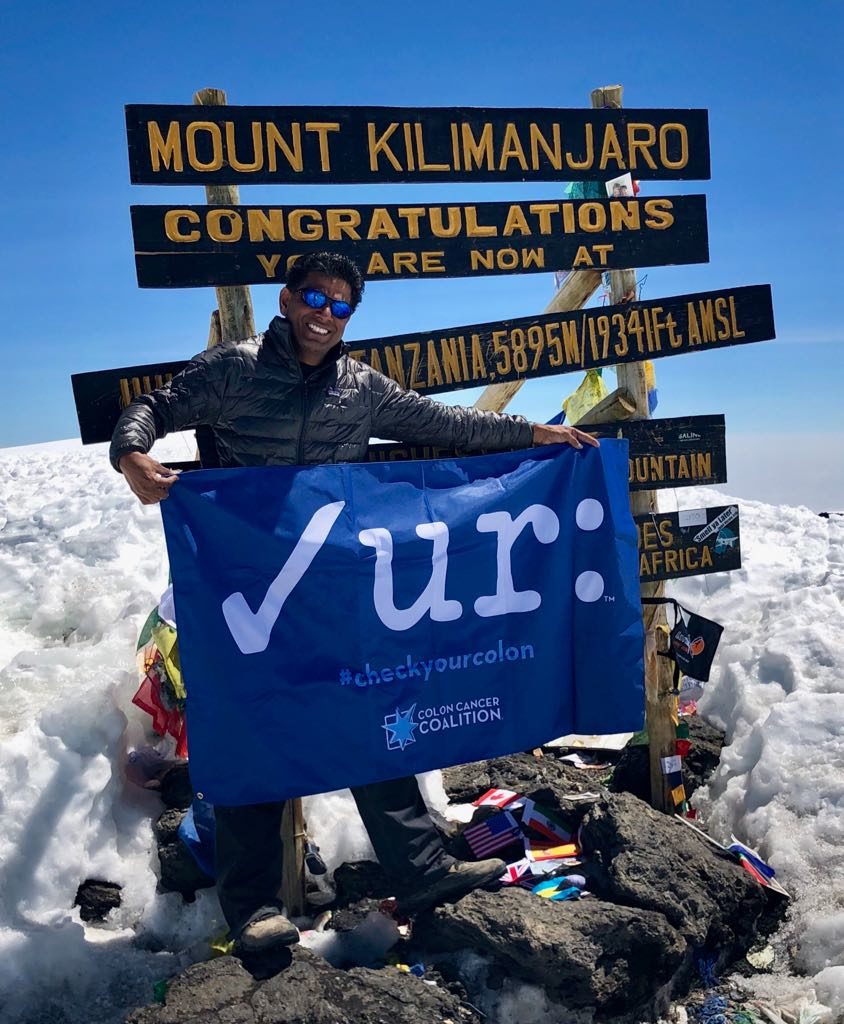
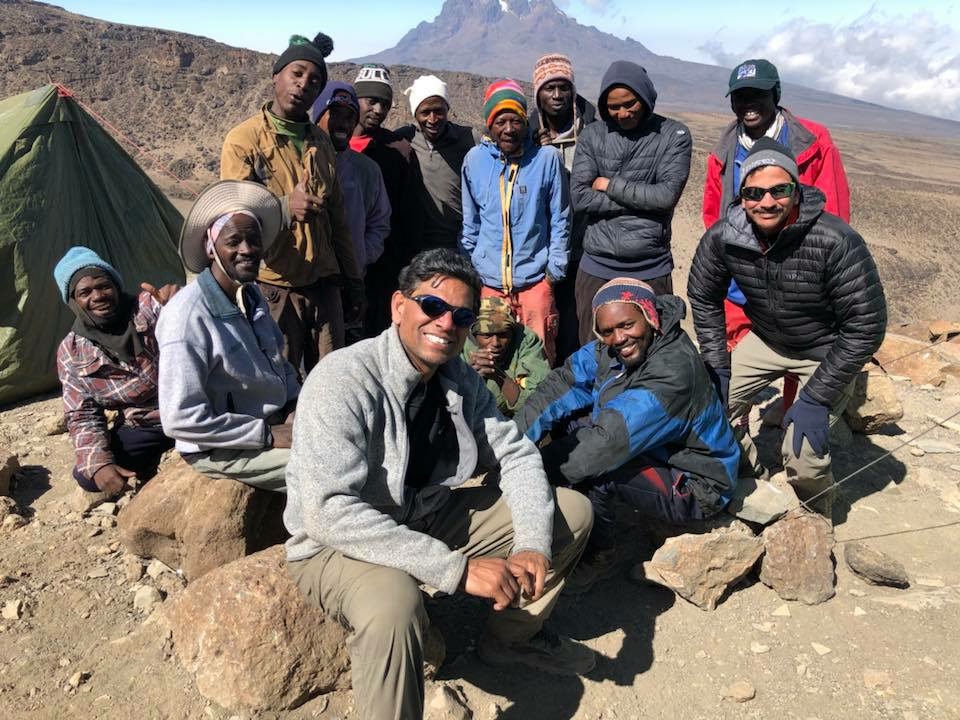
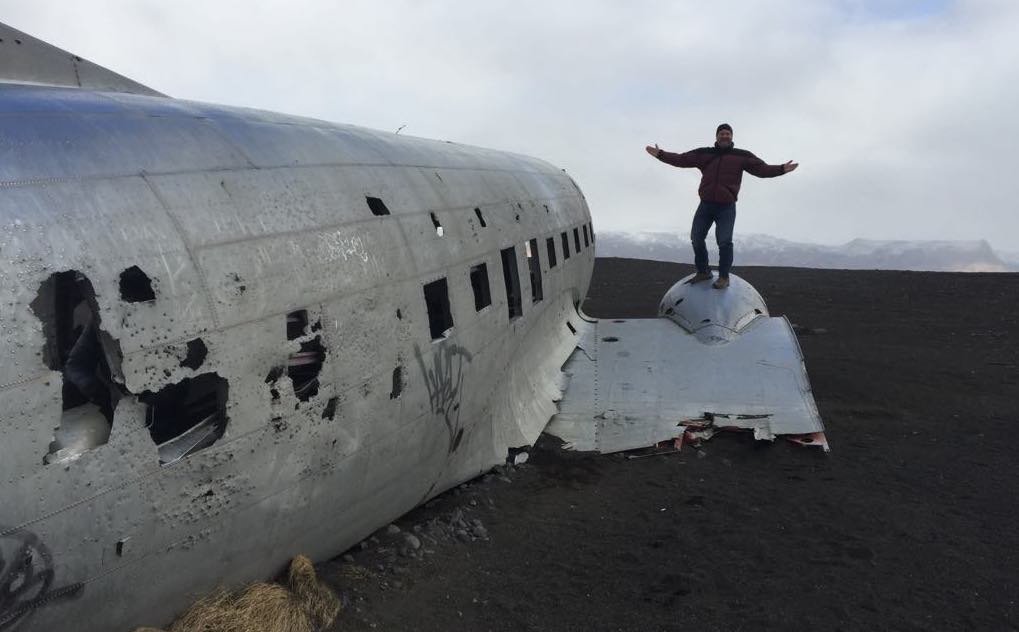
My husband is getting older and since colon cancer runs in his family, I wondered if he should go early to get a colonoscopy done. I didn’t know if you’re concerned about the chances of cancer in your colon, you should get your first colonoscopy at 45 unless it’s a dire situation. My husband is 47, so I’ll ask how he feels to see if he should go to a gastroenterology office, thanks to this post!